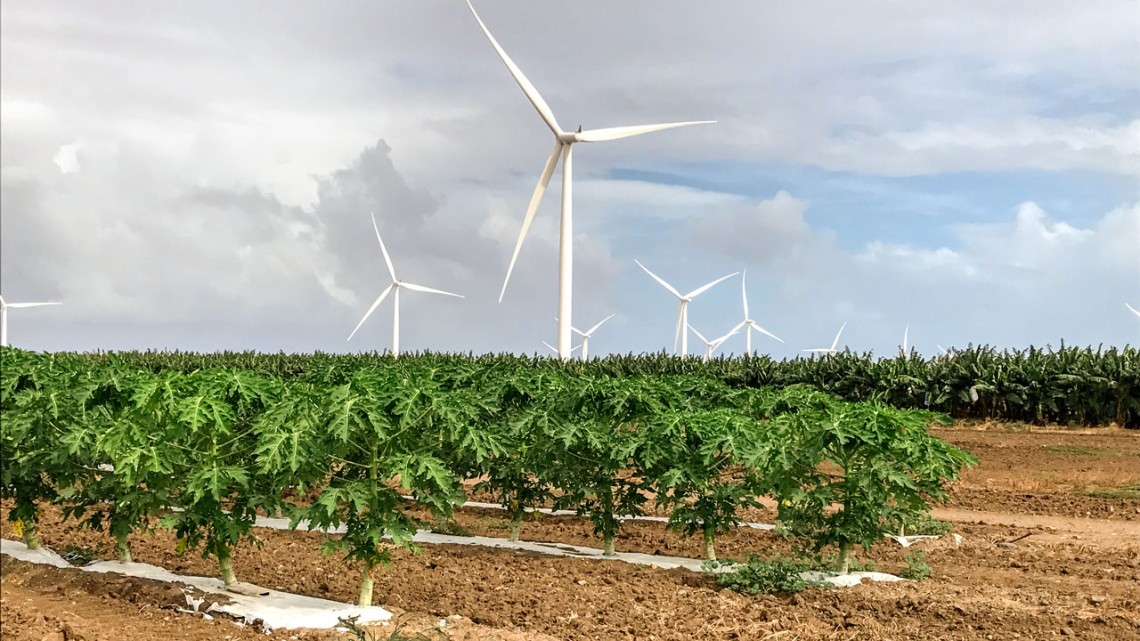
Papaya and plantains grow near a wind turbine in a southern Puerto Rico farm.
Cornell, Puerto Rican students to connect for food security innovation
By Matt Hayes
As Puerto Rico continues to build back from hurricanes Irma and Maria amid intensifying climatic changes, a joint project between Cornell and the University of Puerto Rico at Mayagüez (UPRM) will prepare agricultural students to develop skills, knowledge and abilities in sustainable agriculture and natural resource management on the island.
The project – Student Internships and Faculty Training in Sustainable Management of Agricultural Systems (SuMAS) – links Puerto Rican students and faculty experts from Cornell and UPRM for curriculum development and engaged learning opportunities. The new course and internships will explore technical policies and practices for meeting food, feed, fiber and energy production goals while reducing environmental degradation by 2050.
“Intensification of agricultural production in Puerto Rico must be done in a sustainable manner that utilizes innovative technologies and climate-smart agricultural practices to blunt the devastating impacts of climate change and natural resource depletion,” said Maricelis Acevedo, research professor in the Department of Global Development in the College of Agriculture and Life Sciences, and co-lead on the project.
An island of more than 3.25 million people, Puerto Rico imports more than 80% of its food. The 2017 hurricanes damaged vital agricultural infrastructure, left hundreds of thousands hungry and revealed critical vulnerabilities to the island’s food security.
According to Acevedo, the hurricanes renewed interest in locally grown, value-added agricultural products and new approaches to rural development and entrepreneurship.
Through SuMAS, Puerto Rican students will take part in four weeks of intensive training at Cornell’s campus in Ithaca and Cornell AgriTech in Geneva, followed by four weeks with select agricultural industries in Puerto Rico. The engaged learning opportunities are key to developing next-generation leadership and interest in agricultural research, said project co-lead Andrew McDonald, associate professor of soil and crop sciences with a joint appointment in Global Development.
“The program is designed to cultivate critical thinking and systems analysis skills that will empower students to tackle the complex development challenges confronting food systems in Puerto Rico,” McDonald said.
The SuMAS project takes a multidisciplinary approach to engaged learning. Students and faculty will collaborate at the intersections of agricultural and social science disciplines, including natural resources, plant and crop sustainability, food science and technology, integrated pest management and animal-livestock science production.
The course will be taught for the first time in Spring 2022 at UPRM, with invited lectures from Cornell faculty. The first group of UPRM students will arrive in Ithaca during summer 2022.
Matt Hayes is director for communications for Global Development in the College of Agriculture and Life Sciences.
Media Contact
Get Cornell news delivered right to your inbox.
Subscribe
